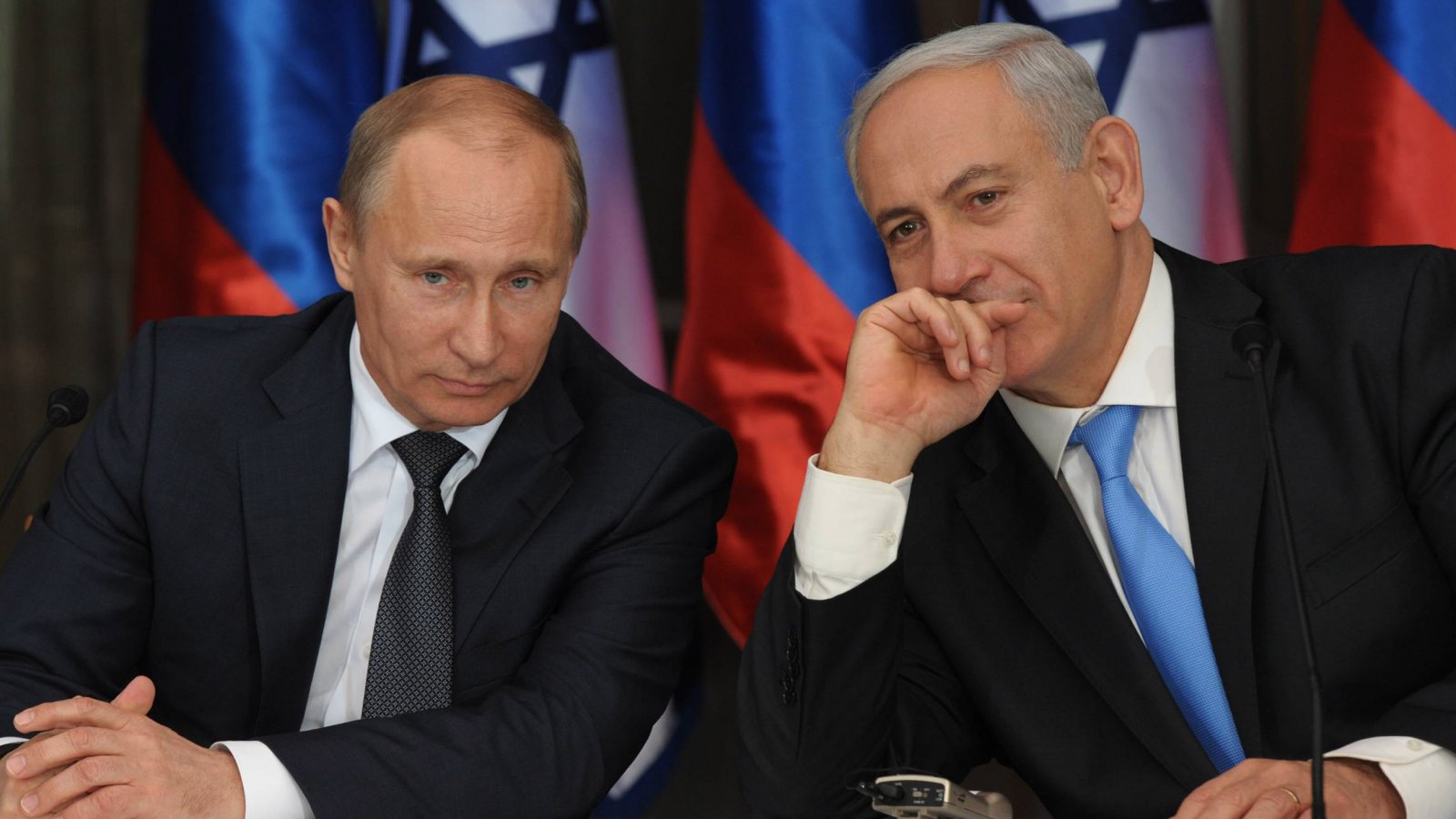
According to The New Yorker, officials from Israel, Saudi Arabia, and the United Arab Emirates have tried privately to get President Trump to agree to a grand bargain with Vladimir Putin that ideally would get Russia to help remove Iran from Syria in exchange for the United States dropping sanctions implemented as punishment for Russia's invasion of Ukraine and annexation of Crimea.
During a private meeting shortly before the November, 2016, election, Mohammed bin Zayed, the crown prince of Abu Dhabi, floated to a longtime American interlocutor what sounded, at the time, like an unlikely grand bargain. The Emirati leader told the American that Vladimir Putin, the Russian President, might be interested in resolving the conflict in Syria in exchange for the lifting of sanctions imposed in response to Russia’s actions in Ukraine.
Current and former U.S. officials said that bin Zayed, known as M.B.Z., was not the only leader in the region who favored rapprochement between the former Cold War adversaries. While America’s closest allies in Europe viewed with a sense of dread Trump’s interest in partnering with Putin, three countries that enjoyed unparallelled influence with the incoming Administration—Israel, Saudi Arabia, and the U.A.E.—privately embraced the goal. Officials from the three countries have repeatedly encouraged their American counterparts to consider ending the Ukraine-related sanctions in return for Putin’s help in removing Iranian forces from Syria.
(...)
The special counsel, Robert Mueller, and his F.B.I. team, tasked with probing Russia’s interference in the 2016 election, have been investigating whether the U.A.E. facilitated contacts between Trump’s team and Russian officials and sought to influence U.S. politics. Nine days before Trump’s Inauguration, Erik Prince, the founder of Blackwater and a confidant of Steve Bannon, met at M.B.Z.’s resort in the Seychelles with Kirill Dmitriev, the head of Russia’s sovereign wealth fund, whom the Emiratis used as a go-between with Putin.
(...)
Mueller’s team has also focussed on Trump transition-team meetings in December, 2016, that involved Emirati and Russian officials. One, at a New York hotel, was attended by M.B.Z., and another, at Trump Tower, was attended by Sergey Kislyak, then Russia’s Ambassador in Washington. During the December 1, 2016, meeting between Kislyak and Trump’s transition team, both sides wanted to discuss the conflict in Syria, and the Russian Ambassador proposed arranging a conversation between Michael Flynn, the incoming national-security adviser, and people he referred to as his “generals,” according to congressional testimony by Jared Kushner, Trump’s son-in-law and senior adviser. To prevent intelligence agencies from eavesdropping on the conversation, Kislyak proposed using a “secure line,” prompting Kushner to suggest using the secure communications gear housed at the Russian Embassy in Washington.
(...)
As an inducement for Putin to partner with Gulf states rather than Iran, the U.A.E. and Saudi Arabia started making billions of dollars in investments in Russia and convening high-level meetings in Moscow, Abu Dhabi, Riyadh, and the Seychelles.
(...)
It is unclear whether M.B.Z.’s preëlection proposal came from Putin himself or one of his confidants, or whether the Emirati leader came up with the idea. But the comment suggested that M.B.Z. believed that turning Putin against Iran would require sanctions relief for Moscow, a concession that required the support of the American President. If Hillary Clinton had won the election, the idea of accepting Russian aggression in Ukraine would have been a nonstarter, current and former U.S. officials told me. But Trump promised a different approach.
Israel also had an interest in the United States working with Russia to push Iran out of Syria and lobbied President Trump to cooperate with Putin.
Separately, a former U.S. official recalled having a conversation after Trump’s Inauguration with an Israeli Cabinet minister with close ties to Netanyahu in which the minister pitched the American on the idea of “trading Ukraine for Syria.” The former official told me, “You can understand why Russia’s help with Syria is a far higher priority for Israel than pushing back on Russian aggression in Ukraine.
(...)
After Trump took office, the idea was raised again, by Adel al-Jubeir, the foreign minister of Saudi Arabia, and Abdullah bin Zayed, the foreign minister of the U.A.E., during a private March, 2017, dinner that included several other guests. “Their message was ‘Why don’t we lift the Ukrainian sanctions on Russia in exchange for getting the Russians to push Iran out of Syria,’ ” an attendee recalled the foreign ministers saying.
(...)
Trump told aides that he was frustrated that he could not make progress because of political opposition in Washington. The Americans who heard the Israeli, Emirati, and Saudi pitches in late 2016 and early 2017 assumed that the idea was dead. But ahead of the Helsinki summit, Trump started making statements that suggested he could be open to making a deal with Putin after all.
Full story: Israeli, Saudi, and Emirati Officials Privately Pushed for Trump to Strike a “Grand Bargain” with Putin (The New Yorker)